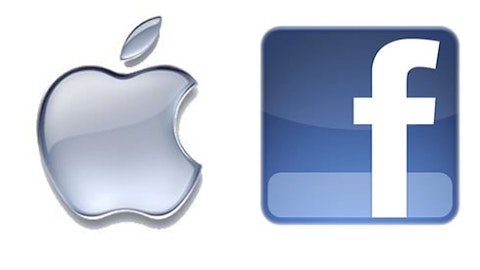Of all the companies that have given social networking a try, Facebook Inc (NASDAQ:FB) has been both the most popular and the most troublesome among investors. Of the company’s available shares, 16.5 percent are sold short amidst a number of factors. The most often-cited factor is Facebook’s apparent incapacity to “monetize its mobile user base.” This shortcoming, along with the lock-up expiration of about 225 million shares at the end of October and 777 million shares in November, has been feeding bearish outlooks on Facebook Inc (NASDAQ:FB) for the last few months. Barron’s cover story slapping a price of $15 per share on the stock—about a 23 percent decrease from present levels—certainly didn’t fuel confidence. This was likely not met with enthusiasm among the many hedge funds with holdings in Facebook (view them here).
However, in the wake of a positive earnings report, Zuckerberg & Co. managed to increase ad revenue 32 percent year-over-year and reported a 28 percent year-over-year increase in daily active users. The story of “popular opinion” about Facebook as an investment seems to be entering its next chapter.
Facebook Inc (NASDAQ:FB) claims a membership of around 1 in 7 people in the world (whether or not this is exactly accurate is a subject of debate), therefore situating itself against Google Inc (NASDAQ:GOOG) as the best advertising opportunity in the world. But what’s the issue with Facebook? Yahoo Finance’s Jeff Macke bluntly stated that Facebook needs to realize “not just how to monetize their mobile users but how to sell anything. Until Facebook does that, the stock is not at a bottom as far as I can see.” The hopes of a Facebook phone have been dashed, and there is no quick fix to Facebook’s mobile problem. And the present shot of optimism over earnings, leading to a higher share price, makes it a riskier time to initiate a position in Facebook.
Investors have been generous to some of Facebook’s peers in this respect such as Linkedin Corporation (NYSE:LNKD). Linkedin’s IPO in May 2011 opened at $45 a share, and shares presently trade at slightly over $105. Facebook has been receiving intense scrutiny from commentators like Macke claiming that Facebook’s advertising revenue leaves much to be desired. However, this is perhaps even more true of Linkedin. On a price/sales basis, Linkedin Corp (NYSE:LNKD) and Facebook Inc (NASDAQ:FB) have multiples of 15.5 times and 11.8 times respectively. This means that Facebook’s share price is actually cheaper when it comes to revenue generation.
The discount attached to Facebook shares is partially due to the differences between Linkedin’s business and Facebook’s business. Linkedin, as is often overlooked, provides a number of professional services that link employers with potential employees. This particular niche is lucrative since it provides a concrete service. However, the current pricing of Linkedin means that the company must innovate and grow extensively in order to justify the pricing of its shares. This, however, involves cutting into margins in order to grow the business, which could hurt bottom-line earnings.
Interestingly, though, Linkedin Corporation (NYSE:LNKD)’s co-founder Reid Hoffman talked up Facebook last month. His advice: give Facebook Inc (NASDAQ:FB) a closer look after the major share lockups are finished so that investors can see how the “market responds.” The biggest lockup of 777 million shares ends on November 14, so that might be judgment time for investors.
Facebook is also trying to diversify its advertising approach buy introducing new buttons like the “want” button, which would allow the company to make much more money per user than off of mere banner advertisements. The launch of iTunes 11 with Facebook integration could be a significant catalyst—iTunes and Apple Inc. (NASDAQ:AAPL)’s App Store are inherently cross-platform and mobile-ready. The “Collections” idea is Facebook’s offering to the world of merchandise, enabling socially interactive ways to shop online. These partnerships with some of the most important online merchants could be just the “real deal sales” that analysts like Jeff Macke are looking for. But the message is clear: wait out the storm before buying.
Disclosure: Brian doesn’t have any positions in Facebook Inc (NASDAQ:FB) but is long Apple Inc (NASDAQ:AAPL).






